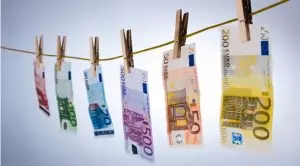 The governments of some European Union member states were reprimanded by the European Commission for their failure at introducing more adequate measures to prevent criminal and terrorist organisations from camouflaging money used for illicit activities. The said camouflage schemes normally involve criminal organisations moving their illegal funds around different member states of the EU. Online gambling was listed among the products and services that are especially vulnerable to such illicit practices.
The governments of some European Union member states were reprimanded by the European Commission for their failure at introducing more adequate measures to prevent criminal and terrorist organisations from camouflaging money used for illicit activities. The said camouflage schemes normally involve criminal organisations moving their illegal funds around different member states of the EU. Online gambling was listed among the products and services that are especially vulnerable to such illicit practices.
Věra Jourová, who assumes the position of European Commissioner for Justice, Consumers and Gender Equality, warned that as many as 17 of the EU member states did not enforce the said measures on time. Jourová also specified that the national governments of the transgressors had been given over two years to apply the necessary rules to prevent such illegal activities, an amount of time the European Commissioner for Justice deems more than sufficient for the task. The measures in question are all part of the so-called Fourth Anti-Money Laundering Directive and were expected to be enforced across all member states as of June 26, 2017.
One of the requirements outlined by the European Commission has to do with each country’s government creating its own national register, which is to contain information regarding the actual beneficial ownership of companies. These registers will render it easier for EU authorities like Europol to make correct assessments while at the same time making it more difficult for people to use corporate structures as a camouflage for their illegal assets.
This approach is also said to simplify the task of EU law enforcement authorities because it enables them to combine their efforts when tracking the suspicious flow of funds between European countries. Banking institutions and accounting firms in the EU member states are also expected to take the necessary steps, required for the extensive appraisal of the cross-border financial transactions they process and the assets they handle.
European Commissioner for Justice Jourová explained she has already addressed her concerns in 14 letters she sent to the EU member states which have failed to add the new requirements to their national statute books. Three other countries have also received letters from Jourová as they have implemented the said measures only partially.
Jourová referred to these countries’ failure to enforce the measures as “unacceptable”. The European Commissioner for Justice went on to emphasise the importance of adopting adequate measures against money laundering in the wake of the terrorist acts that have been occurring across Europe as of late.
Jourová described the Directive as a safeguard against illegal financial transactions from high-risk countries. She also explained that the new measures have taken into account the more “modern” risks concerning prepaid card payments and virtual currency transactions.
The only member states that have so far confirmed the full implementation of these measures include Italy, the United Kingdom, Germany, Slovenia, France, Spain, Croatia, Austria, Sweden, the Czech Republic, and Belgium. The countries which fail to apply the new anti-money laundering rules after receiving the letters from Jourová risk facing legal proceedings that may eventually end up in the European Court of Justice. The European Commissioner for Justice expressed her hopes that the transgressors would soon add the new measures to their national statute books.
This past June, the European Commission published a report, which contained as many as 40 services and products that were deemed an easy target for terrorist and criminal organisations looking to engage in money laundering activities. Some of them include virtual currencies such as Bitcoin, various crowd-funding platforms like Kickstarter, and not surprisingly, online gambling.
The issue with potential money laundering practices has already been addressed by many licensed online gambling operators as the latter have adopted various measures to prevent illegal organisations from using their websites as platforms for such activities. Some of the measures include verification of players’ identities as well as of the transactions they process to and from their online casino accounts.
At the end of June, the UK Gambling Commission (UKGC) announced the new anti-money laundering measures are already into effect on British soil. All non-remote and online gambling operators licensed by the UKGC are expected to comply with the new requirements set forth by the European Commission and make sure they, themselves, have adopted effective measures against money laundering.
- Author


